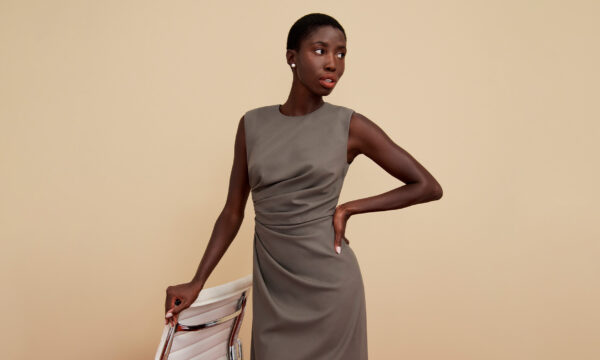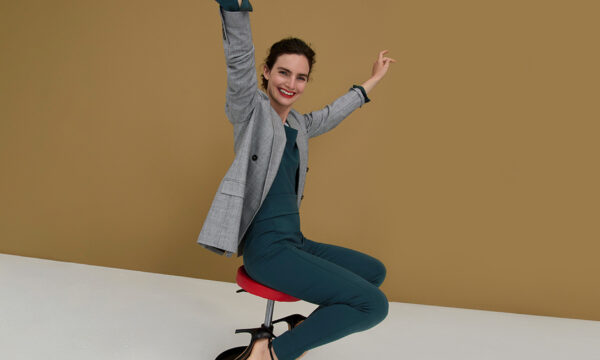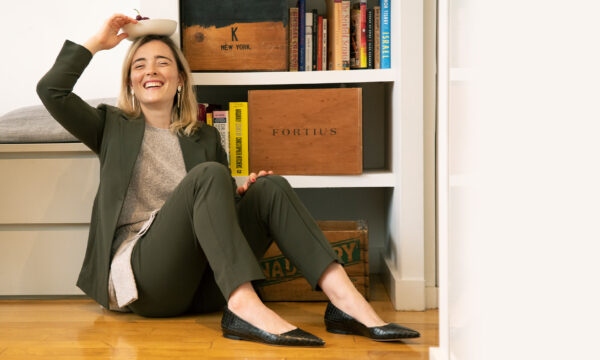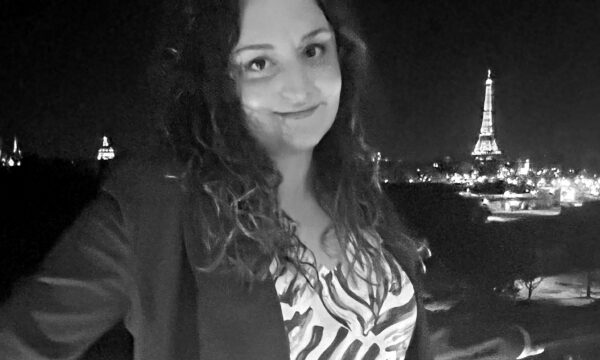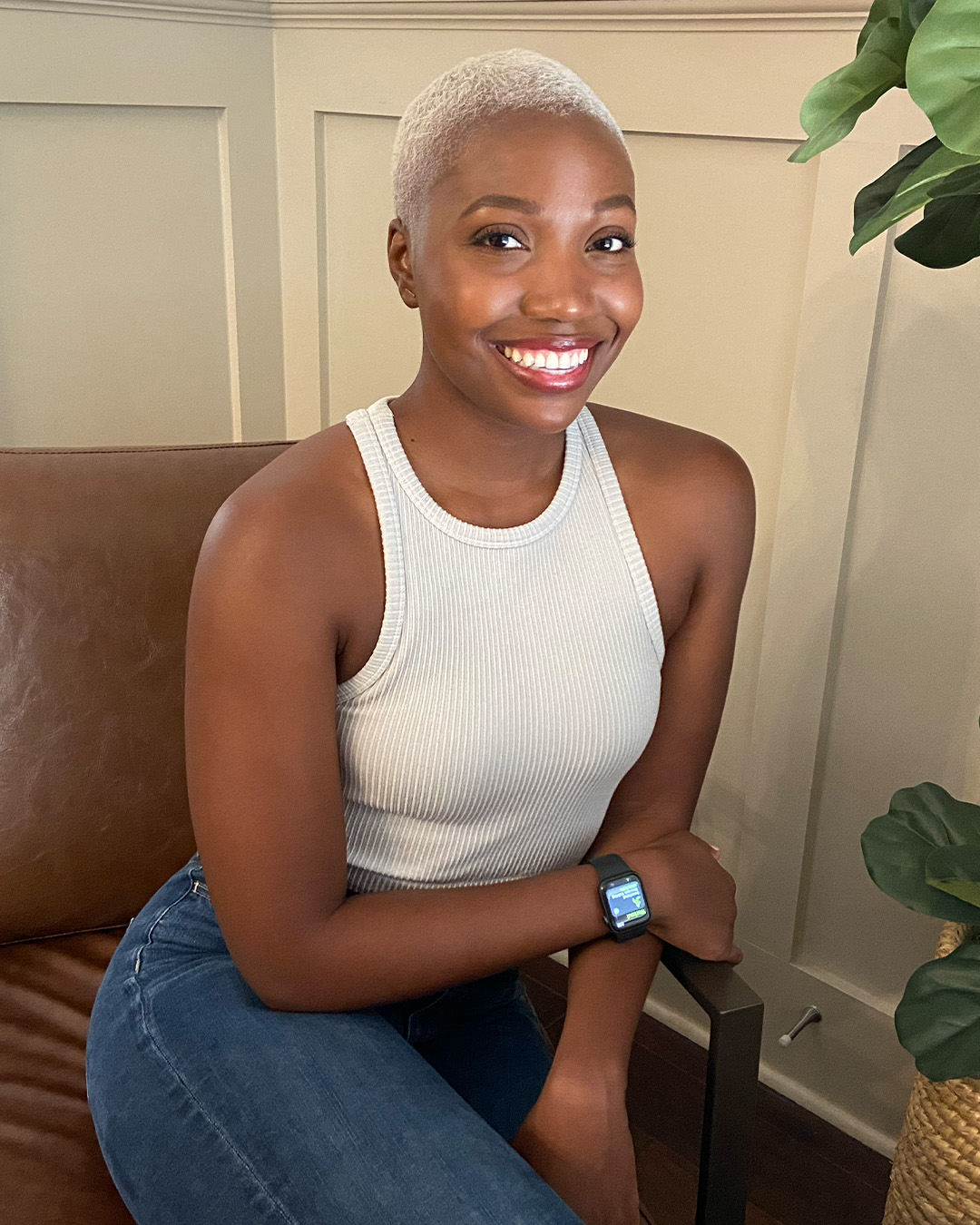
Elecia Allen is a former M.M.LaFleur stylist who’s currently working on her first short film.
“It Was Time to Do Something Uncomfortable”: A Former M.M. Stylist’s Unexpected Career Journey
Elecia Allen is risk-averse by nature—but she quit her job and moved across the country to follow her passion anyway.
Want more M Dash?
Sign up for our weekly newsletter.
Thank you!
For the past decade, Elecia Allen has known she wanted to make a film about the experience of losing her mother at age 14. And in 2021, she quit her job, moved back home, and got to work on making this dream a reality with help from her best friend, award-winning producer Alahna Lark. Their 15-minute short film, Where Do You Go? (for which they’re currently fundraising), depicts a teenage girl who avoids processing her mother’s death by mentally escaping into a dreamlike alternate reality.
“The film is directly inspired by my own experience,” says Elecia. “I tried really, really hard—especially in that first year—not to deal with my loss. I’m the only girl in my family, and I’m also the youngest. For some reason, 14-year-old me thought, ‘I’m the only woman in the house. I have to take care of everyone else.’ I felt like I didn’t have time for my emotions, like I had to focus on healing my family, and I’d deal with my own feelings later. The film’s title, Where Do You Go?, is inspired by the way I would avoid processing her death.”
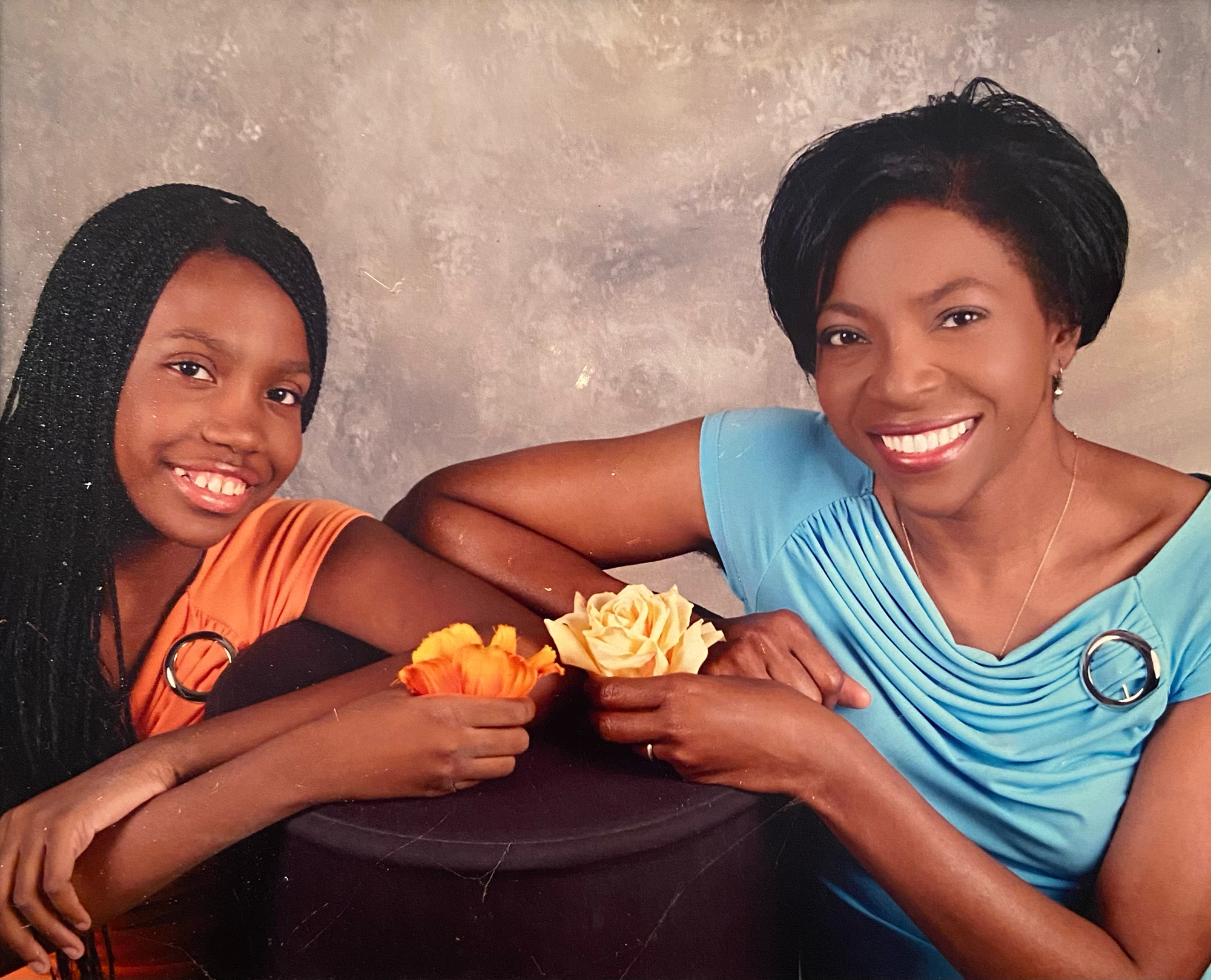
Elecia and her mom.

Elecia and her mom.
Elecia hasn’t always been in the film industry. In fact, some of you might recognize her name for a different reason; for her first job out of college, Elecia worked as an M.M.LaFleur stylist. Often, the most rewarding careers are ones that don’t follow a conventional path, and Elecia’s journey is proof that pursuing your passions—even when it’s uncomfortable—is worth the risk. Below, she shares how she went from M.M. stylist to filmmaker, her tips for networking as an introvert, and why it’s important to talk about grief through art.
On the Path from M.M. Stylist to Filmmaker
“M.M. was a great first job for me. Working at a startup, you get to do a little bit of everything, so I got to learn what I like and what I don’t like. And what I loved was hearing customers’ feedback about the products and then talking to the design team so they could make those products better.
I learned that process was called customer insights, and I was able to pivot my experience to my next job, at Fabletics. I started as a customer insights analyst, and by the end of almost four years, I was leading the customer insights team. What I enjoyed most about it was the qualitative research: being in front of the customer and talking to her directly, asking what she liked and what she didn’t like, asking her thoughts about marketing, models, products—everything. And then I’d digest all that information and share it in a manner that everyone could understand and act on.
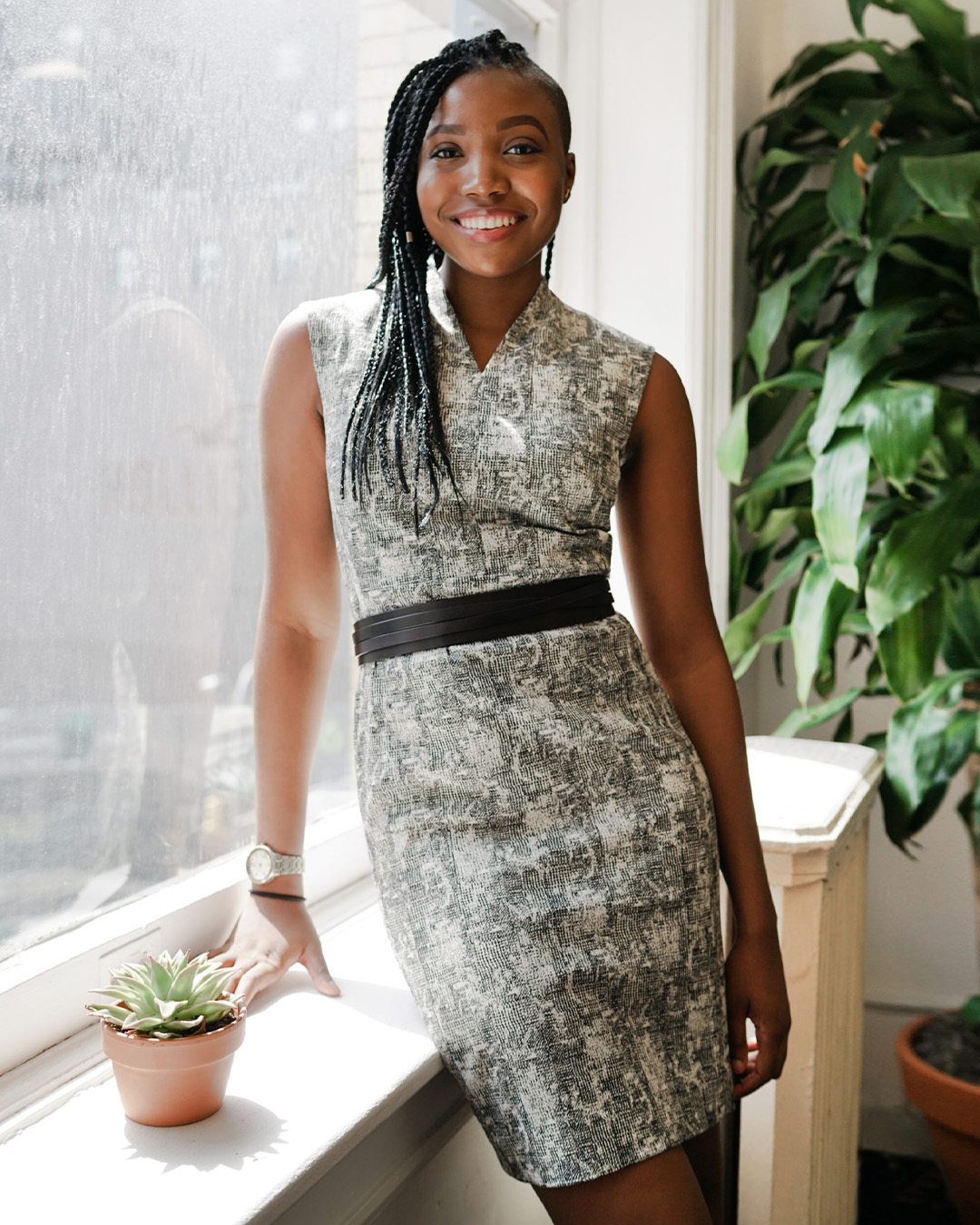
Elecia wears the Aditi dress.
When M.M. started making plus sizes, I really enjoyed working on that project. And when I got to Fabletics, I told them, ‘I like working with plus-sized customers, and our plus sizes should be better.’ And they were like, ‘Alright, lead the project.’ We ended up completely turning around plus size at Fabletics—it was like a 180.
I love talking to people. I love asking them the right questions and seeing them get excited and be honest. That customer insights background has been really helpful as I’ve pivoted over to film, because everything I do, I always have my target audience in mind. What are they looking for? What do they want to hear and see? Of course, I have my own ideas about what I want to create, but I’m always thinking, what kind of impact is this going to have on the people I share it with?”
On Taking Risks
“I told Alahna about the idea for the film a couple of years ago, and she just started crying immediately. She was like, ‘We need to do something with this. Let’s do a short film.’ And I was like, ‘That sounds great.’ But then a year later, nothing had really happened. We were writing a little bit, but we weren’t making the progress that needed to happen, because I was working full time, as well as trying to do this film. I knew something needed to change, but I hadn’t fully committed to it.
Then I turned 27, and I have not had a birthday that tough in I don’t even know how long. I could no longer deny that I was officially in my late twenties. I had to ask myself, ‘Am I on the life path that will get me to where I want to be by the time I hit 30?’ I started looking at every major area of my life and evaluating whether it was consistent with what I really wanted. I looked at my job and asked myself, ‘Is this what I want to do forever?’ I looked at my relationship with my boyfriend of seven years and asked myself, ‘Is this the relationship I see myself in forever?’ And after every question I asked myself, I realized, ‘No, this isn’t what I really want.’ So I was like, ‘Okay, it’s time. Let me save up this money.’
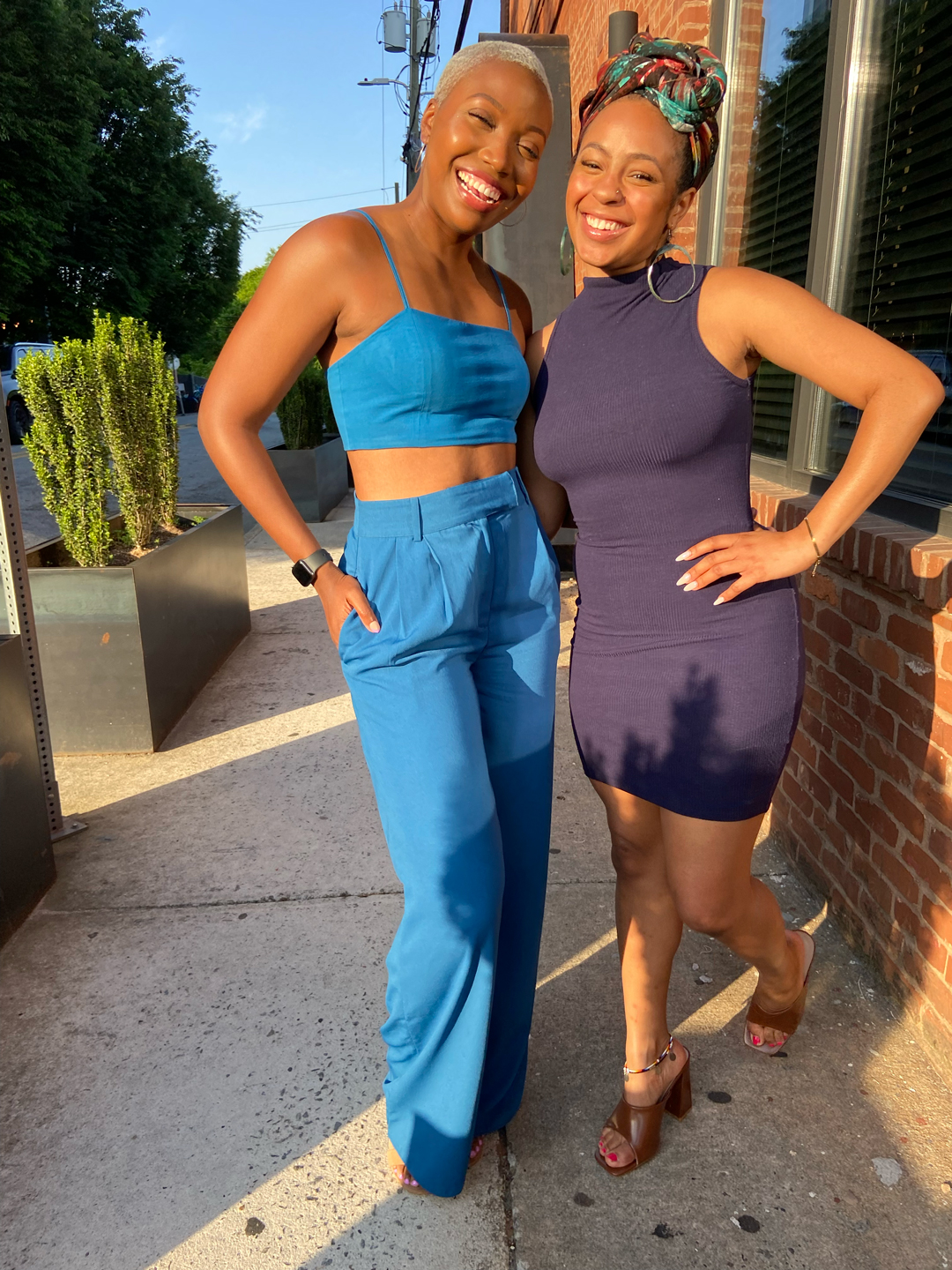
Elecia with her best friend, award-winning producer Alahna Lark.
I saved up $15,000, and I moved home to Atlanta where Alahna is and where I wouldn’t have to deal with rent. I broke up with my boyfriend. And in September of 2021, I finally quit my job. Within a couple of months, we were writing the film. It was a lot of change back to back—I also cut off all my hair, after 10 years of having a very specific haircut.
I’m risk averse, but knew that all of this change needed to happen. It wasn’t until I turned 27 that I finally realized I had lived comfortably for such a long time, and it was time to do something uncomfortable. I haven’t regretted any of it.”
On Starting Fresh in a New Industry
“I’m a perfectionist, and I like knowing what I’m doing before I get into something new. So changing industries has definitely been tough. However, having Alahna to show me the ropes and working with her production company has been super helpful.

On the set of the crowdfunding campaign for the film.
What’s also been helpful is that the Atlanta indie film industry is amazing. Everyone wants to help everyone, and no one has an ego. In LA or New York, if you’re not already big in your industry, they don’t want to talk to you. In Atlanta, everyone wants to learn what you’re doing. They’ll say, ‘This is your first time? Amazing. I’m so proud of you. How can I help?’ I’ve had people I just met say, ‘Let’s trade services for services. I can let you borrow my camera if you’ll help me with this or that.’ There is no gatekeeping.
Being an introvert, I don’t usually like networking or talking to strangers. But what’s been helpful for me is meeting friends of friends. I know my friends are good people, and I know they keep good people around them, so I’m naturally comfortable. By leaning on my friends, I’ve realized that I have a much larger network with more connections than I ever knew about. I had no idea until I just asked.”
On Learning How to Fundraise
“Fundraising has definitely been the hardest portion of this, because I’ve had to reach further than my network, and asking strangers for money is so awkward for me. But I have a friend who works in fundraising, and she always reminds me, ‘You’re not asking strangers for money, you’re asking them to invest in your vision.’
It’s about seeing what you have as valuable, and then being able to communicate that value. Anytime I’ve really opened up to people about my experience, people want to help, because anyone can understand grief. Everyone’s lost somebody or something, whether it’s a grandmother or a parent or a dog. It all hurts.

On the set of the crowdfunding campaign for the film.
It’s actually easy to inspire people—it’s just about getting out of your comfort zone and talking about it. It’s hard for introverts to be open, but it’s definitely worth it to talk about what you’re passionate about. And when you do open up, you’re going to find someone else who’s equally passionate and wants to help you.”
On Turning Grief Into Art
“Originally, my idea was to make a music video to the song “Frozen Creek” from Circa Survive’s album Blue Sky Noise. The album came out a year after my mom passed away, right when I was in the thick of feeling like crap, and it’s all about grief. The vocalist who writes all the music had clearly lost somebody, and the album gave words to the emotions that I didn’t know how to express. It was one of the first times where I felt like I wasn’t alone.
It was funny, because friends who listened to the album would say, ‘I thought of Elecia immediately.’ They would hear me in it, and they would understand what I was going through.

On the set of the crowdfunding campaign for the film.
I’m going to feature a lot of the music in the film—I actually talked to the band, and they agreed to allow me to use it for free. The vocalist is so gung ho about it—he’s like, ‘It’s crazy that my writing about something that’s personal to me can have such an impact on people.’ I’m excited for other people to hear the album how I heard it.
Grief is so isolating. It makes you want to go inside of yourself to avoid burdening people with your emotions. But I’ve found that sharing my experiences is so much more healing than trying to figure everything out on my own. I want people to learn from my experience. I want to use my art to help other people heal.”





